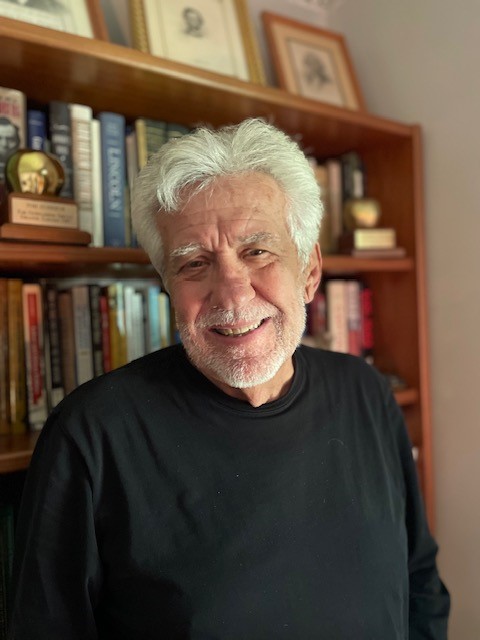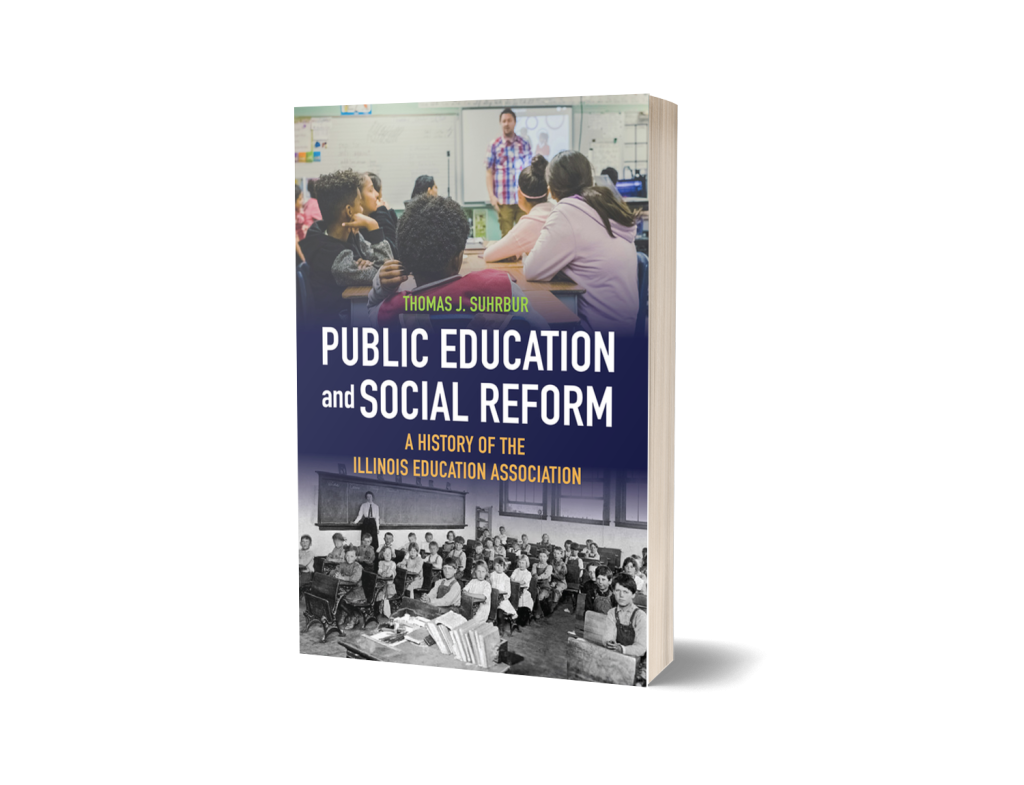Thomas J. Suhrbur, author of Public Education and Social Reform: A History of the Illinois Education Association, answers questions about his new book.
Q: Why did you decide to write this book?
I grew up in Cicero IL. in a large working class family. I was one of eight children. My father was a union pipefitter. Many of my uncles and neighbors were union members. I was the first member of my family to attend college.
Cicero was all-white and among the most racist communities in the state.
Growing up, I was always deeply troubled by the terrible poverty that I witnessed in Chicago and appalled by the racism expressed by my family members and neighbors.
When I began teaching in Chicago, I joined the Chicago Teachers Union and was on strike in three of my five years. After being laid off in Chicago, I taught in an Illinois Education Association (IEA)-represented district in the suburbs. As I became involved in the IEA, I was impressed by the grassroots, democratic nature of the union which piqued my interest in writing this book.
When I was about to finish my Certificate of Advanced Studies in Labor History at Northern Illinois University in 1985, I was hired as a union organizer for the IEA.
Q: What is the most interesting discovery you made while researching and writing your book?
When I began my research, I knew very little about the early history of Illinois State Teachers’ Association (renamed the Illinois Education Association in 1936) except for the fact that it was organized in 1853 and that it played a central role in the creation of the state’s public school system.
What I discovered in my research of the book was that the issues that the IEA faced in its support of public education in the 19th century, have been ever present throughout Illinois history.
These issues include:
• Taxation and funding
• Race and racism
• Democratic values and social justice
• Religion and privatization
• Unionism
• Sexism and Women’s Rights
Q: What myths do you hope your book will dispel or what do you hope your book will help readers unlearn?
Today, more than ever, privatization of education in the form of vouchers for K-12 private schools and homeschooling is a serious threat to our national identity and democratic values. As America becomes more diverse and secular, support of public education among political and religious conservatives has declined.
K-12 public schools are often the first, and only place, that children meet others of different races, religions, and cultural backgrounds. Private schools and homeschooling often segregates children based on these differences leading to fear, distrust, and prejudice.
Q: Which part of the publishing process did you find the most interesting?
Writing my proposal for University of Illinois Press (UIP) based on advice I received from several history professors whom I know and working with the UIP staff on the manuscript.
Q: What is your advice to scholars/authors who want to take on a similar project?
Identify early on in your research the major theme(s) that will develop throughout the book.
Q: What do you like to read/watch/or listen to for fun?
I love reading labor history, politics, and science. I enjoy PBS programs such as NOVA, Frontline, Nature and PBS Newshour.

Thomas J. Suhrbur is an affiliate of the Illinois Labor History Society and a retired IEA organizer.

